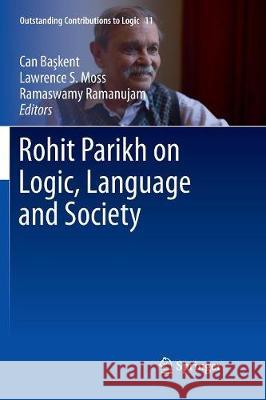Rohit Parikh on Logic, Language and Society » książka
topmenu
Rohit Parikh on Logic, Language and Society
ISBN-13: 9783319838380 / Angielski / Miękka / 2018 / 359 str.
Kategorie BISAC:
Wydawca:
Springer
Seria wydawnicza:
Język:
Angielski
ISBN-13:
9783319838380
Rok wydania:
2018
Wydanie:
Softcover Repri
Ilość stron:
359
Waga:
0.52 kg
Wymiary:
23.39 x 15.6 x 1.98
Oprawa:
Miękka
Wolumenów:
01
Dodatkowe informacje:
Wydanie ilustrowane











